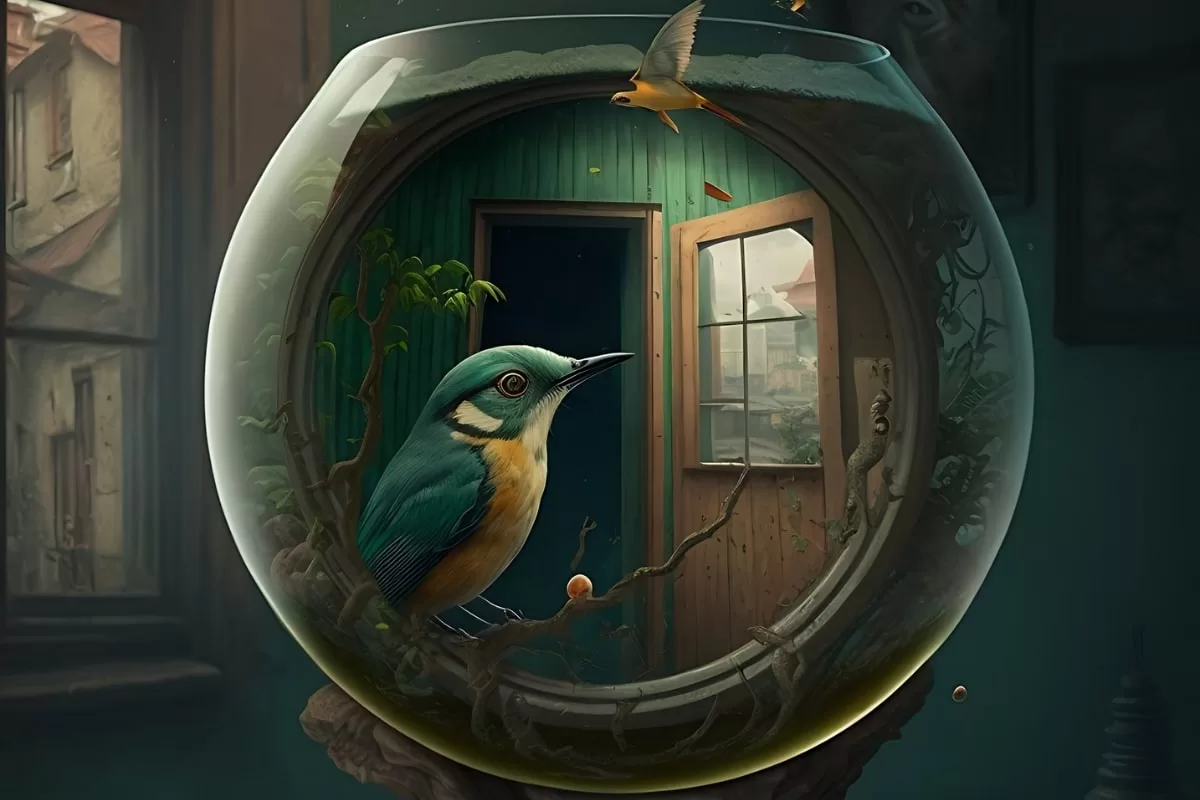
Perception is considered the way we interpret information while the perspective is our point of view. You can probably tell the difference this way but these definitions are over-simplified and don’t tell the whole truth.
Also it’s commonly understood that how we see things depend on perspectives but this isn’t the case. You’ll understand why after reading this post.
Perception and Perspective Defined
Perception is considered our understanding, interpretation which is right but there’s a lot that comes before that. Perception is the ability to take in information from our senses and make sense of it based on our knowledge.
It’s generally believed that how we see things depends on our perspective. This is right in a sense, but the process of perception comes before perspective as it provides the best available frame of reference to create a perspective.
Perspective is how we look at things, the angle from which we are viewing things or basically a point of view. As perspective depends on perception, which is based on our knowledge and backgrounds, we can have two people seeing same thing but have different perspectives.
An interesting thing about perspectives is that we sometimes declare them to support our statements. Like “As a ____ I love this product”, where declaring the perspective added weight to the statement.
It should be noted that since our perception is based on our knowledge and senses, it can be factually wrong too which makes the resulting perspective also wrong.
You have probably noticed how sometimes more context and information change our initial perception and, hence, perspective.
As seen in the featured image, the bird looks like it’s inside the fishbowl. But, if we change our position, that would give us new visual information which forms a new perception.
This perception lays the basis for perspective which makes the whole thing clear that this is just an example for optical illusion.
Role of Knowledge in Perception
Knowledge plays a key part in our resulting perception (and then perspective) because our mind is always looking for some past memory to relate to, otherwise it forms the best perception based on our five senses.
For example, if we see a car approaching us from a distance, we don’t think its size is increasing, despite what our senses tell us. Why? Because we understand that seeing things from a distance doesn’t affect their real size.
However, knowledge is not given at birth, so perception without knowledge can be seen in babies as they have little to no past memories to relate to initially.
This also explains why we see babies falling without fear, as they haven’t learned the concepts of depth and height yet, but they start being careful when they do.
Now I want you to look at below image and think what about what the purple object looks like.

It looks like a circle shaped object that is partially hidden by a blue square right? Now see the following image where the blue square is removed.

It appears our initial perception was wrong and it turned out to be a C-shaped object.
But the interesting thing to notice here is how our mind made a perception of the first image based on our knowledge of geometry.
Even though it turned out to be wrong, it was an interpretation based on the best possible information at the time.
Another interesting example is our reaction to perspective questions like “Is the glass half-full or half-empty?”
This question has been so overused that most people already realize that anyone answering “half-full” would be seen as optimist and “half-empty” as a pessimist.
But if we didn’t have this information, we would be relying on our senses, other information instead to make sense of it i.e. perception.
First, we’ll probably look at the glass to see if there’s more water or more space. But if the water level is 50-50, then we’ll just go with what feels right to us, which was the real intent of the test.
In the end, our knowledge built on our understandings, past experiences and backgrounds. All of these play a key role in forming our perception, which provides a frame of reference to create a perspective.
As a result, people who perceive the same things may have different perspectives because they come from different backgrounds.
How We See Things Depends on Perception Not Perspective
Perception as defined helps us make sense of things, but there’s a 3-step perception process that forms our perspective. Understanding this might help in self-understanding and daily life, like we think we can multi-task but it’s not possible to do so.
Selection: We select one thing to focus on, yes just one.
For those who believe they can multitask are actually shifting their attention back and forth from one thing to another, but are only focusing on and selecting one thing at a time to perceive.
Selection happens so fast in our brain that we don’t even think about it. If you’re reading this right now, that means you’ve selected this paragraph to focus on. But if there’s a notification on your phone or someone calls your name, you’ll turn your focus to that without realizing it.
Organization: We analyze and compare to past experiences and knowledge.
This is where differences can come even when people are looking at the same thing. Since we all have different upbringings, knowledge and past experiences, our analysis and comparisons can be different.
When you were a student at any point, you probably noticed when your teacher was putting in extra effort and time to explain something. And, if you had past experiences related to this, you would think that the topic is likely important enough for the teacher to spend more time on it.
Interpretation: We come to an understanding.
Continuing the example, you’ll probably realize that since the topic is important, it will likely come up in tests and should be focused on. This was our interpretation, or mainly what we consider perception.
Now, depending on the education system and the teacher, you may or may not relate to the above example as we all had different past experiences.
The 3-step perception process happens in mere seconds and forms a frame of reference that becomes the base of perspective. For example, if you dislike something, do you think you were born with that perspective?
Well, our preferences don’t come magically in our mind. There were probably some bad experiences or maybe you didn’t find the looks appealing, these kind of things become the basis on which perspectives like “As a person who experienced ____ I don’t like this” are formed.
Similarly, a person with fear of heights may feel uncomfortable looking down below from tall heights. But as you can see, all perspectives are built on some basis which come from the perception process, making it clear that perspectives rely on perception.
So, it would be safe to say that how we see things depends on perception, not perspective. But since they are linked and closely related, it’s fine to use either in terms of how we see things. It’s just that perspective is more commonly understood and used, so we don’t hear much about perception in this regard.
Difference Between Perception and Perspective
Perception is the way we interpret and understand things using our senses and knowledge, while perspective is the lens through which we view the world. Our perceptions are the basis for our understandings, while our perspectives, which are built on top of perception, are used to form opinions.
At the end, it is clear that they are related but not the same. Understanding their relationship can help us appreciate different perspectives and be more accepting.
If you liked this post then you may enjoy reading about how our mind works. One example is Psychology on why we hold ourselves back.
Another interesting post is perception of pets on smartphones, like can they see and understand the content? If not then don’t we look like idiots to them?
Further Study
If you want to go into technical details related to perception and perspective, you may refer to to following:
An amazing YouTube video that goes deep into perception, psychology wise.
Part 2 of the above mentioned video.
Perception, a detailed Wikipedia article on perception, wording may be technical.
Point of view (philosophy), a detailed Wikipedia article on perspective (point of view), wording may be technical.
